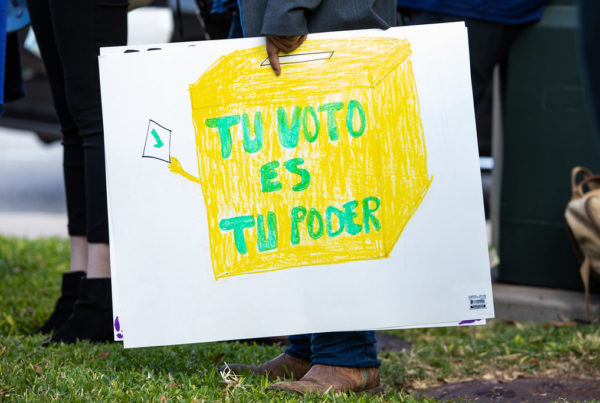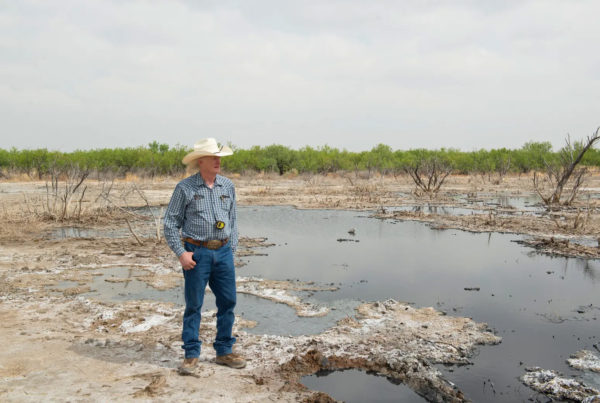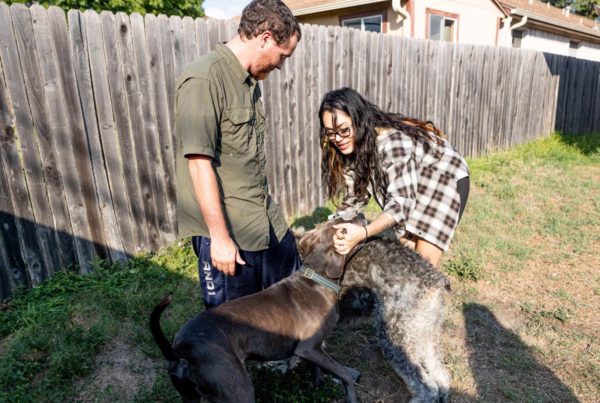October is nearly over, and school districts across Texas are still struggling to hire enough teachers to fill classrooms. Many districts have gotten creative with recruitment, with some hiring teachers without requiring state certification, or accepting candidates from alternative certification programs. But not all of the quick turnaround solutions may be sustainable for the long term.
A new seven-month program at the University of Texas at Austin aims to prepare STEM degree holders to become secondary school teachers. Carrie Culpeper, the manager of UTeach for Texas, joined the Texas Standard to discuss the program and its goals. Listen to the story above or read the transcript below.
This transcript has been edited lightly for clarity:
Texas Standard: Tell us about where we are with the teacher shortage in Texas right now. I mentioned we’re more than halfway through October and I know at some schools students are still having teacher swaps.
Carrie Culpepper: Yeah, unfortunately, that is still the case. I still have several friends and colleagues in K-12 schools and I think the biggest difference between this year and last year is that they’ve responded and so they’re trying to address the issues. But unfortunately it is a long-term problem. It is a systemic problem. And so what we’re hoping with UTeach for Texas, is that our program becomes one of those solutions long-term. We’re starting in Austin with the UTeach program at the University of Texas at Austin. But the UTeach network is statewide.
So what does this mean: “seven-month program”? Does this lead to full certification? What exactly does this do?
Yeah. So this does lead to a full standard certificate for teachers. The first five months is sort of the typical college semester, January to May, and you are taking online courses and you’re doing face-to-face teaching in a classroom with a mentor teacher. Over the summer we have some opportunities for things like teaching at a summer camp or whatever, but then come August you are the teacher of record. You’re in a classroom, you’re earning a salary, you are being supported. That is the biggest aspect of this program we want to emphasize, because we know retention is a huge reason why this shortage exists and so we are there to support you for three years with mentoring, coaching, professional learning. And so by the end of that first year of teaching, you have your standard certificate and you are a full-fledged teacher.
So we’re still several months away from the full impact of this program, right?
In terms of an actual teacher record, yes. In terms of someone being in a classroom, someone available to perhaps substitute, they could assist in the classroom. So I think we can still have an impact right now, but we can have a better prepared teacher for you come August. There are programs that put a teacher in the classroom, day one, no preparation, and we don’t feel that that’s going to solve this problem long-term.
You mentioned that retention is such a big issue and, of course, these districts are responsible for setting the salaries and paying the teachers. A lot of these candidates could make a lot more in other sectors. What do you say to someone with a STEM degree, someone who’d be a perfect candidate for this, who’s considering teaching but frankly doesn’t know if it’s going to be financially sustainable or rewarding?
Yeah, I mean, that’s a real thing. We know that there are teachers who, unfortunately because of their situation and sometimes where they live, it is difficult financially to be a teacher. But, you know, the districts – I feel, being a former district employee – are paying as much as they possibly can given their situations. The state has done some things to alleviate that, but there’s a lot more they can do. I know students who’ve had to pay $300 or $400 just to take a test to become a teacher. So there’s things like that that are actually fairly simple and it sends a message that you’re needed, that we want to come up with solutions that support teachers versus making it harder. And that’s what we’re trying to do as well, because our program is not tuition-based, it’s a fee-based program. We’re hoping to partner with people across the state, whether it’s districts or foundations, and especially if it’s lawmakers who see this as a statewide answer to a statewide problem. And let’s collaborate to put some funding behind that so that we have long-term sustainability for a program that can really fill a shortage area that’s been there a long time.















